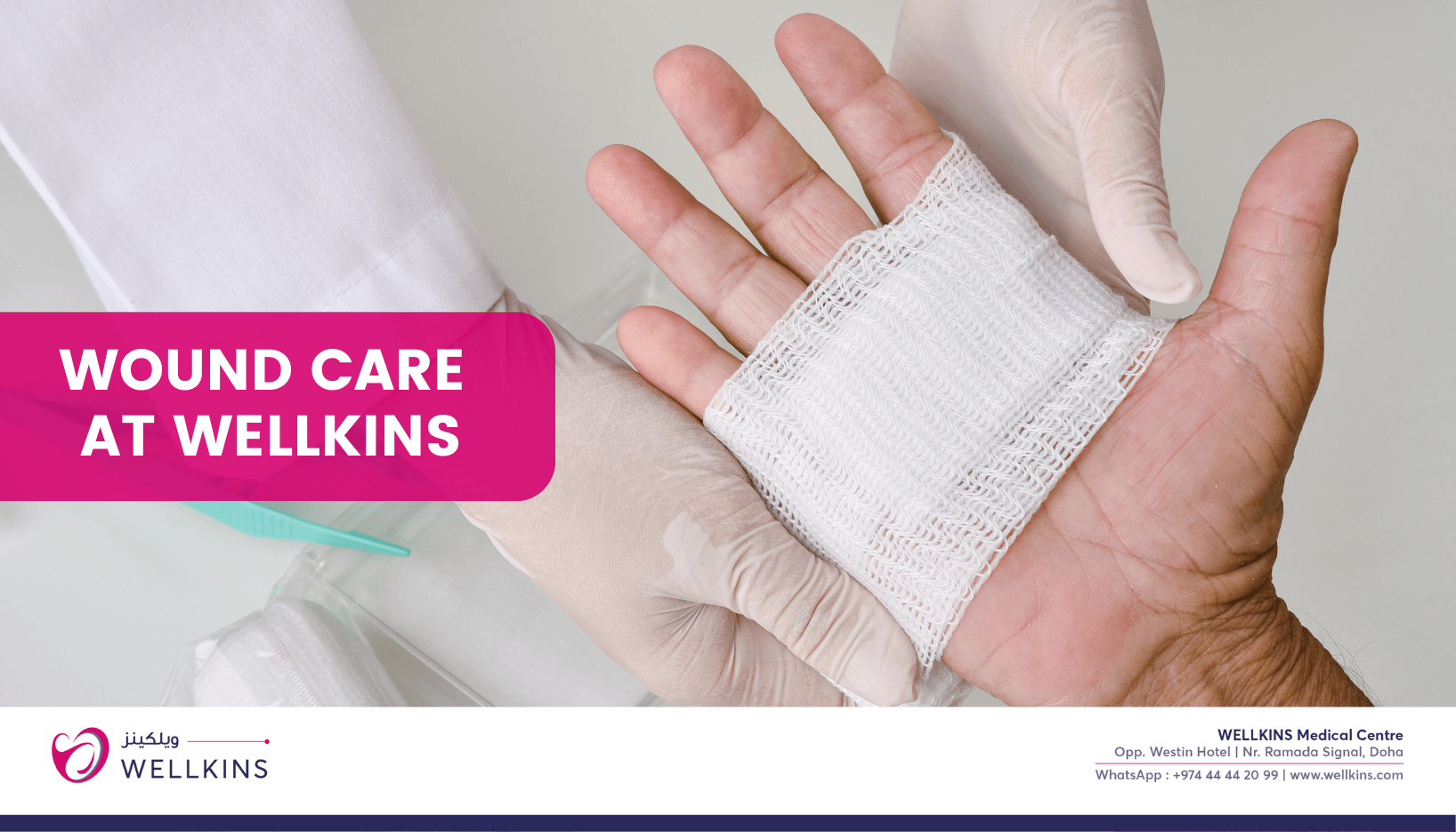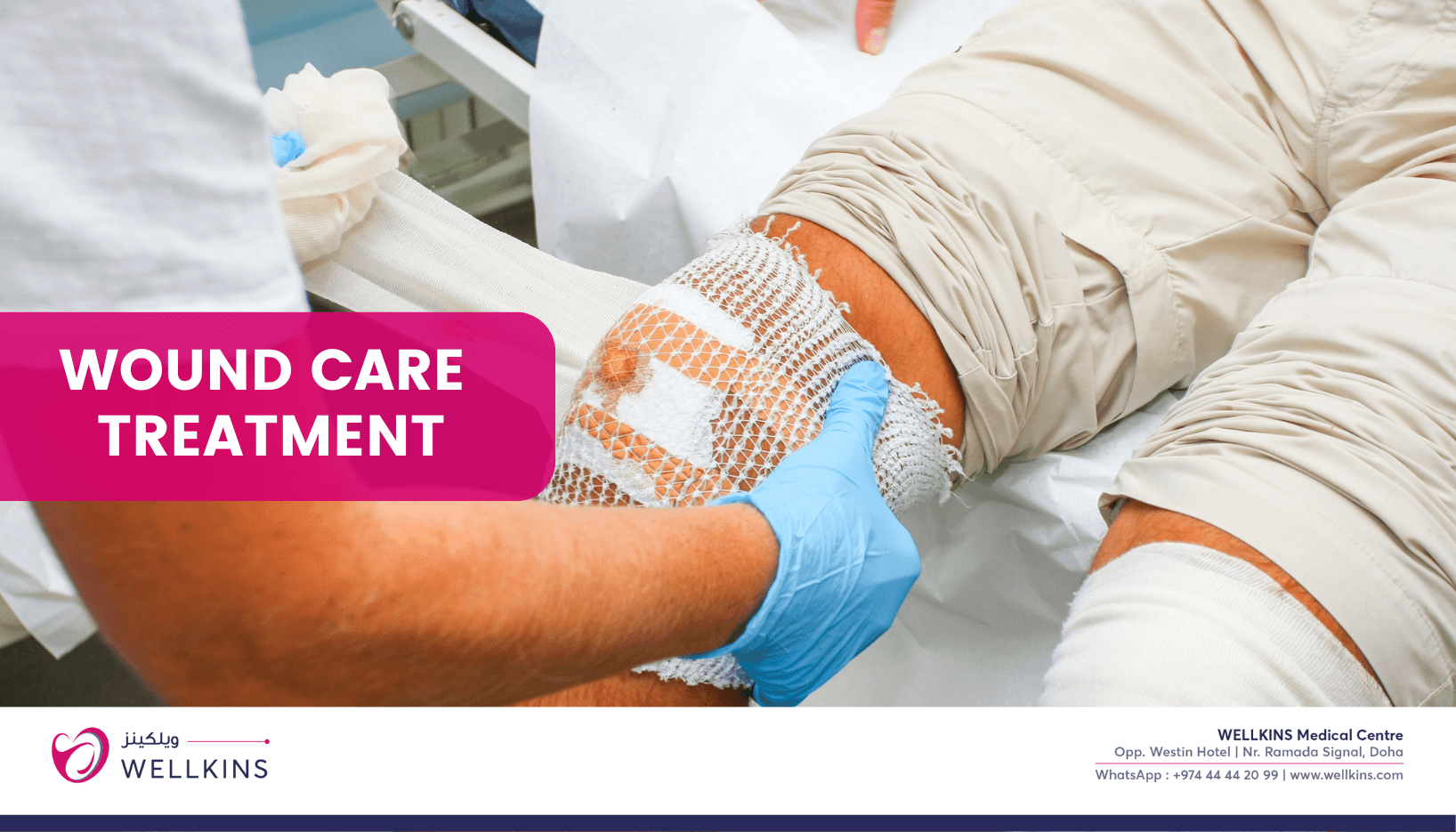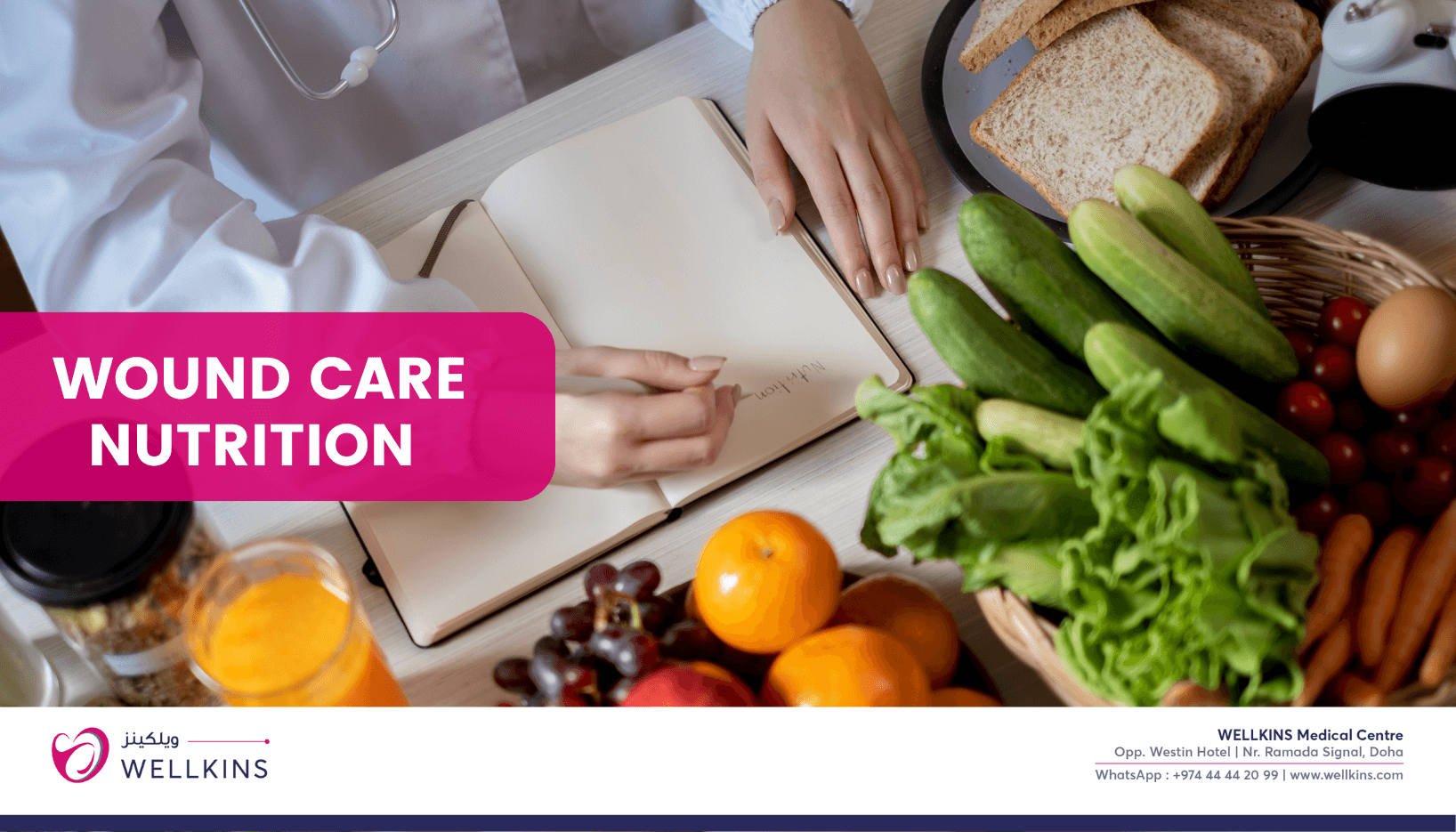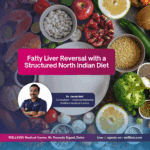Author: Dr.Reneesh (Consultant Orthopedic Surgeon – WELLKINS Medical Centre)
As an orthopedic surgeon, wound care is an essential part of trauma management. Proper wound care not only ensures faster healing but also reduces the risk of infections and complications. Alongside medical treatment, nutrition plays a significant role in recovery, making it vital to address both aspects.
Wound healing and application should hasten recovery and also ensure minimal infection and complication rates. Nutrition is central to recovery along with medical treatment; this is what makes assessment on that critical.
Types of Wounds
Acute Wounds: These result from trauma, or accidents and typically heal in a predictable time frame.
Chronic Wounds: These take longer to heal, often due to underlying conditions like diabetes or poor circulation.
Key Principles of Wound Care
1. Cleansing the Wound
Proper wound cleaning is crucial to prevent infection. Using sterile saline or antiseptic solutions helps remove dirt and bacteria. For traumatic wounds, debris or foreign bodies should be carefully removed.
2. Dressing Selection
Different wounds require different dressings:
Moist dressings (e.g., hydrogels or hydrocolloids) help maintain a moist environment, which is ideal for most wounds.
Antimicrobial dressings may be necessary for wounds at risk of infection.
Non-adherent dressings help prevent trauma when changing the dressing.
3. Infection Control
Signs of infection like redness, swelling, and pus should be treated promptly. Antibiotics may be required for severe infections. Regular monitoring is crucial to detect early signs of complications.
4. Pain Management
Adequate pain relief through analgesics helps the patient tolerate wound care procedures better. Over-the-counter pain medications like ibuprofen or prescription medications may be used.
5. Sutures and Staples Removal
Sutures or staples should be removed within the recommended time frame to avoid complications like scarring or infection. This is typically done 7-14 d
Nutrition for Wound Healing
Wound healing demands a good supply of nutrients. Poor nutrition can delay healing, increase infection risk, and lead to poor outcomes.
1. Protein
Protein is essential for tissue repair and regeneration. Patients should consume:
Lean meats, poultry, and fish
Dairy products and eggs
Plant-based options like beans, lentils, and tofu
2. Vitamin C
Vitamin C supports collagen formation, which is essential for wound healing. Foods rich in Vitamin C include:
Citrus fruits like oranges and lemons
Strawberries, kiwi, and bell peppers
3. Zinc
Zinc aids in wound healing and immune function. It is found in:
Red meat, poultry, and shellfish
Whole grains and legumes
4. Vitamin A
Vitamin A promotes epithelialization, which helps close wounds. Good sources include:
Carrots, sweet potatoes, and spinach
Eggs and dairy
5. Hydration
Keeping the body well-hydrated is essential for tissue health and wound healing. Encourage patients to drink plenty of water and fluids daily.
6. Omega-3 Fatty Acids
Omega-3 fatty acids help reduce inflammation, which can impede wound healing. These can be sourced from: Fatty fish like salmon and mackerel, Flaxseeds and walnuts
Complications of Improper Wound Care
Neglecting proper wound care can lead to several complications, such as:
Infections: Delays healing and can lead to abscesses or systemic infections.
Delayed Healing: Due to inadequate nutrition, poor wound care practices, or underlying conditions.
Scarring: Failure to manage wounds correctly can lead to excessive scarring or keloids.
Proper wound care combined with a nutrition-rich diet is essential for fast and effective healing. Surgeons and healthcare professionals must educate patients on maintaining wound hygiene, recognizing signs of complications, and the importance of a balanced diet for optimal recovery. By addressing both the medical and nutritional aspects, we can significantly improve the outcomes for patients.
Read more about the orthopedic services at wellkins here: https://wellkins.com/orthopedics/








